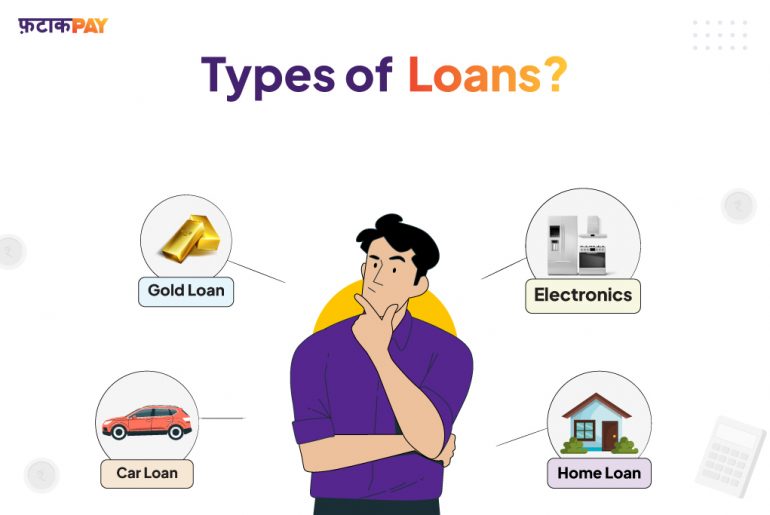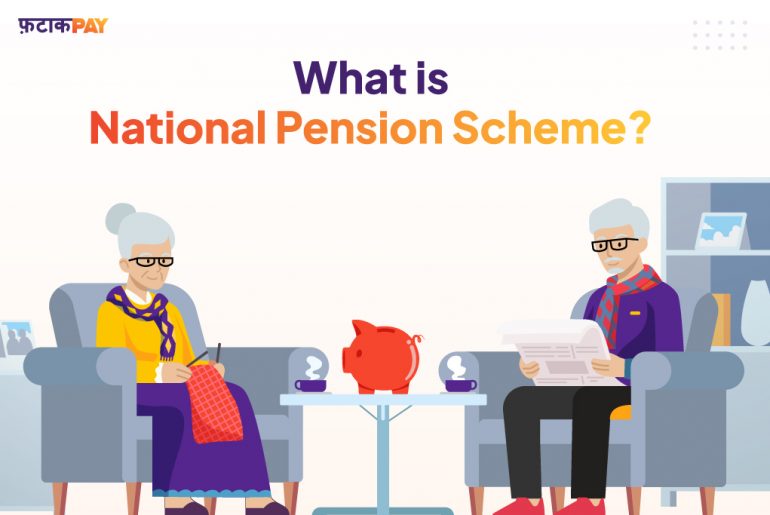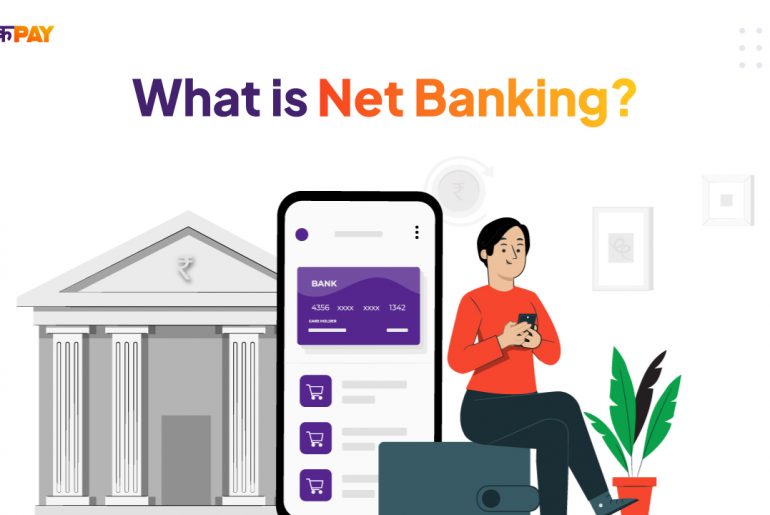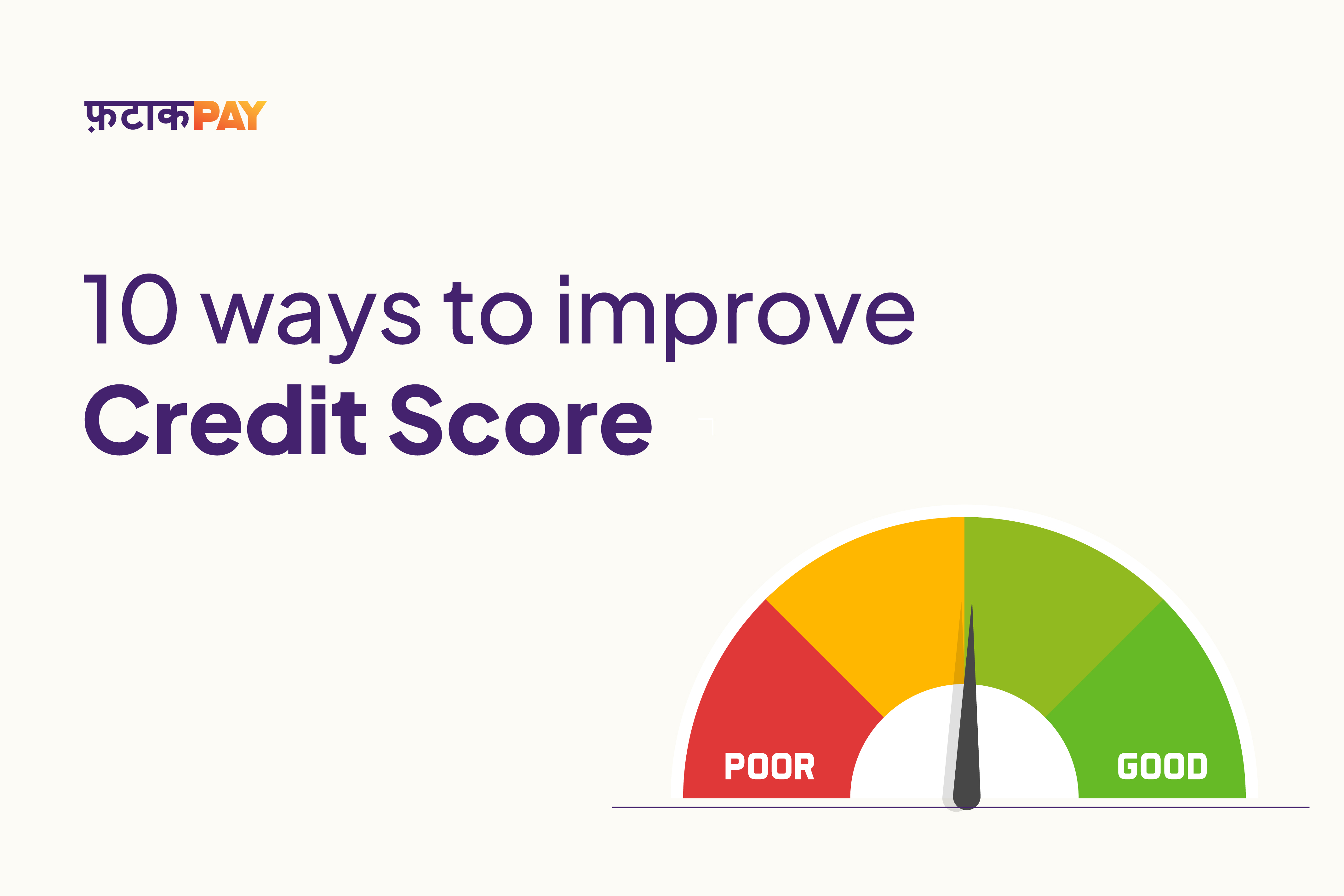In essence, a loan is money that is lent with the assurance that it will be paid back over time. Your obligation to pay interest on any borrowed funds is established by the lender. coupled with the borrowed main sum. These are several types of loans that are offered in India.
Various types of loans:
In India, there are many different loan options, and they can be divided into two groups based on what they are used for:
Loans that are 1) Secured and 2) Unsecured.
Secured loans (Types of loans – Category 1)
Collateral is put up as security for the amount of money you are borrowing from the lender. In this way, the lender has some options for recovering their funds if you are unable to repay the loan. Secured loans typically have lower interest rates than unsecured loans.
Various secured loan types
Home Loan
Home loans are a type of secured financing that provides you with the money to purchase or construct the home of your choice. The several kinds of home loans offered in India include the following:
Loan for land purchase: To buy a plot of land for your new house
Loan for home construction: To build a new house
Home loan balance transfer: Transferring your present mortgage debt to a new loan with a reduced interest rate
Top-up loan: Can be utilised to update the interior of a newly built home or to renovate an existing one
Be aware that the lender needs you to put down at least 10%–20% of the purchase price when purchasing a new home or property. The remainder is funded. The loan amount that is disbursed is determined, among other things, by your income, stability, and present debts.
Loan against property (LAP)
One of the most popular types of a secured loan is a loan against property. To obtain the necessary finances, you may pledge any residential, commercial, or industrial property. Depending on the lender, the loan amount disbursed corresponds to a different proportion of the property’s worth.
While some lenders might make an offer that is about equal to 50% to 60% of the property’s worth, others might make an offer that is close to 80%. Businesses can use a loan against property for a variety of purposes, including product development, business expansion, and R&D.
Loans against insurance policies
You can, in fact, borrow money against your insurance policy. However, keep in mind that not all insurance policies are eligible for this.Only policies, such as endowment and money-back policies, which have a maturity value, can avail loans.
As a term insurance plan has no benefits for maturing, you cannot obtain a loan against one. It’s important to remember that only when endowment and money-back insurance have accrued a surrender value may you choose to borrow against them. Only after three years of uninterrupted payment of regular premiums can these insurance acquire a surrender value.
Gold loans
According to a KPMG estimate, the organised Indian gold loan market is anticipated to reach Rs. 3,101 billion by 2019–20 because to the variable interest rates provided by banking institutions.
You must pledge gold jewellery or coins as security for a gold loan. A specific portion of the value of the gold that was pledged was used to sanction the loan amount.
Loans against mutual funds
Mutual funds are a great tool for building long-term wealth. You can pledge equity or hybrid money in exchange for a loan, to the financial institution . You must write to your banker and sign a loan agreement in order to achieve this.
Usually, you can borrow 60–70% of the value of the units you’ve pledged.
Loans against fixed deposits
In addition to providing guaranteed returns, a fixed deposit might be helpful if you need a loan. Depending on the lender, the loan amount might range from 70 to 90 percent of the value of the FD. But it’s important to remember that the loan’s term cannot exceed the FD.
Unsecured loans (Types of loans – Category 2)
These are loans that don’t need security. Based on your history, credit score, and previous relationships, the lender grants you the loan. Thus, in order to be eligible for these loans, you must have a strong credit history. Because there is no security for unsecured loans, their interest rates are typically higher.
Various unsecured loan types:
Personal loan
One of the most common unsecured loan kinds that provides quick liquidity is the personal loan. However, personal loans have higher interest rates than secured loans because they are an unsecured form of financing. You can get this loan at a competitive interest rate if you have a solid credit score and a high, stable income. The following uses for personal loans are possible:
Control the cost of a family wedding.
Pay for a holiday or an overseas excursion
Fund your home improvement project
Pay for your child’s college expenses
Combine all of your debts into one loan.
Cover unforeseen/unplanned, urgent costs
Short term loans for businesses
A short-term business loan, another sort of unsecured loan, can be utilised to cover everyday expenses as well as the expansion costs of various organisations and organisations. Some examples include:
Loans for working capital
Finance for machinery and equipment
Loans to MSMEs for small businesses
Loans for female business owners
Credit to traders
Manufacturers’ loans
Loans to service-oriented businesses
Additional links:
Thank you for reading our blog! We hope this blog was informative. Here are some other blogs/LinkedIn articles for you to check out.
https://www.linkedin.com/pulse/what-nbfc-fatakpay/?trackingId=D2%2B1JHBR2HJnAYNnR2K8Rw%3D%3D
https://fatakpay.com/blog/the-evolution-of-lending-from-old-to-new-age-part-1/
https://fatakpay.com/blog/the-evolution-of-lending-part-2/
About FatakPay:
FatakPay provides virtual credit facilities for all. It’s available on your phone and caters to your everyday needs in both online and offline formats. Payments are done seamlessly through UPI/QR codes. The solution provides an almost zero cost, free, quick, transparent and secure way to transact in a multilingual format with a Scan Now, Pay Later facility and easy repayment options.
Link to FatakPay App: https://play.google.com/store/apps/details?id=com.fatakpay
Link to the Website: https://fatakpay.com/
| Instant Loans by Amount | |||
|---|---|---|---|
| ₹1500 Instant Loan | ₹2500 Instant Loan | ₹5000 Instant Loan | ₹10000 Instant Loan |
| ₹12500 Instant Loan | ₹15000 Instant Loan | ₹17500 Instant Loan | ₹20000 Instant Loan |






